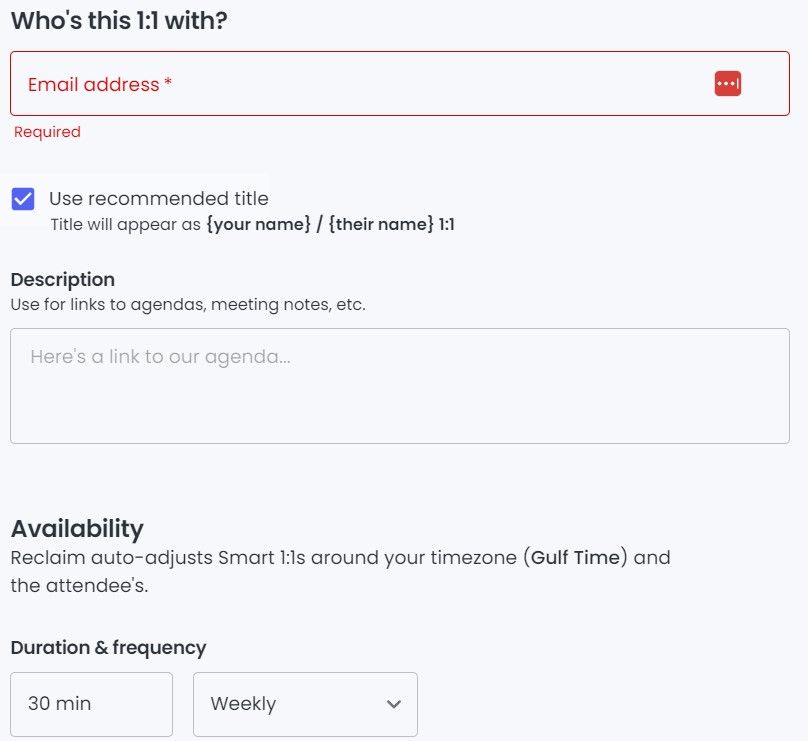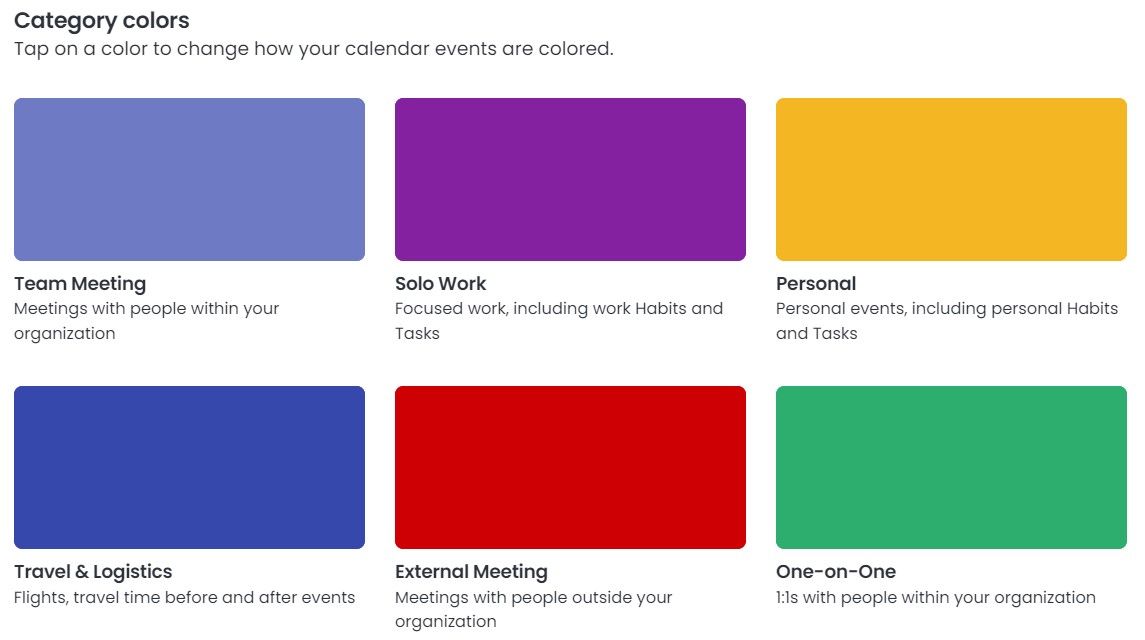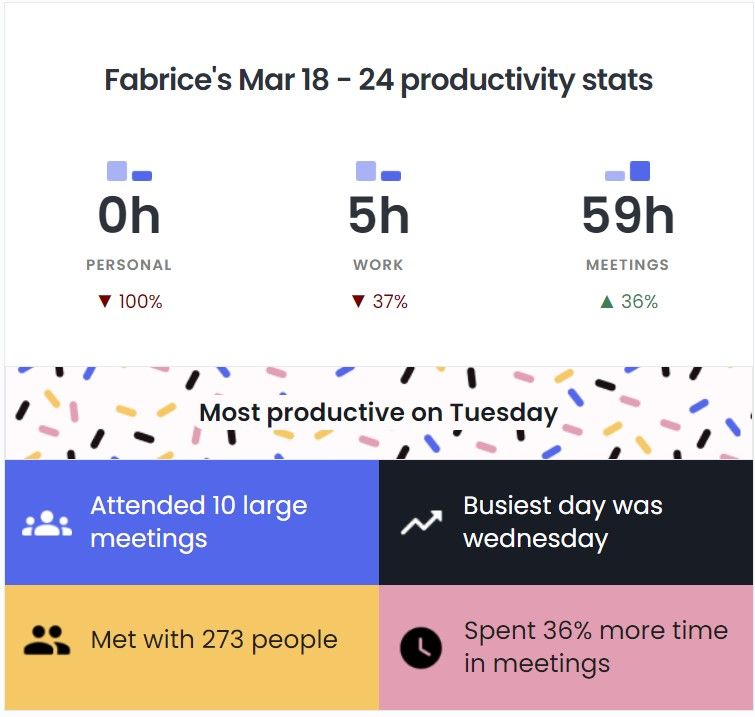Discover time management strategies for engineering leaders as we explore the journey of a Director of Engineering. Learn how tools like Google Calendar, Google Tasks, and Reclaim.ai help streamline schedules, optimize meetings, and maintain focus in a fast-paced, high-stakes work environment.
Introduction
As the Director of Engineering at Talabat, one of the leading food ordering companies in the Middle East and North Africa, I face the unique challenges of overseeing a diverse and dynamic tribe of 80 employees. Our team, which consists of developers, designers, data scientists, product managers, and engineering managers, is responsible for managing a multi-million euro segment of the business. Effective time management and collaboration are crucial to our success in this high-stakes environment.
In the past decade, my career has seen rapid growth, and with it has come the need to meet with various stakeholders regularly. Balancing meetings, tasks, and personal responsibilities while ensuring the smooth operation of our team requires a well-organized and efficient approach to time management. In this article, I will share my experience crafting a schedule that accommodates the diverse needs of my role, as well as the tools and techniques that have helped me maintain control over my ever-evolving calendar.
From managing one-on-one meetings with direct reports to collaborating with other departments, steering committees, and even mentoring team members outside of my tribe, the demands on my time are vast and varied. Read on to learn how I've leveraged tools such as Google Calendar, Google Tasks, and Reclaim.ai to create a streamlined and effective time management system that keeps me focused, productive, and prepared to tackle the challenges of leading a high-performing engineering team in a fast-paced, competitive industry.
My Schedule
My career has seen rapid growth in the past ten years. With that has come to the need to meet with many people regularly. Here are some of the people I have to talk to range from:
My direct reports
As I write this article, I have nine engineering managers that report to me, five in Dubai in the same office as me, three in Cairo, and one in Turkiye. Here is how I have scheduled our "formal" interactions:
- Thirty minutes weekly 1-on-1 (5 hours per week): to discuss immediate challenges and blockers.
- One-hour monthly connects (10 hours per month): to track the progress of the goals they committed to. These goals range from people growth, tech excellence, delivery and product OKR goals, and team health.
- One-hour quarterly connects (10 hours per quarter): to discuss career goals and adjust our actions to ensure they are growing in the right direction.
- One-hour to one hour-and-a-half weekly domain catch-up (4 to 6 hours per week): for all my direct reports in the same domain and their product managers so that we can align on the progress of business and tech projects, tech quality, incidents, etc.
Skip reports (2 hours a month)
I don't have 1-on-1 with all my skip reports (I can't fit 50+ people in my calendar), but I meet some skip-reports monthly when I am following up on a problem, they are working on a unique project, or I am doing routine check "at the source."
Close collaborators (average 3 hours a week)
These are typically the co-lead of my tribe (director of product, director of data). We have formal interaction one to five hours per week, plus countless informal "corridor" chats, and I sit next to my director of product, so we typically talk all the time. This proximity does wonders for our ability to stay super-aligned.
Steering Committee and others (avg. 7 hours a month)
I attend multiple "SteerCo" where directors from various functions and some members of the C-level align on the progress of some strategic projects, and executive decisions are made to drive projects in the right decision. They usually last one hour each, and I have at least one per week and sometimes three.
I also have other meetings like:
- Monthly catch-up with all the tribe leads(2 hours a month)
- The CTO's staff meetings and other Tech leadership meetings. (average 6 hours per month)
- Ad-hoc mentoring sessions with people outside my tribe. (average two hours a month)
- Two weekly hiring progress reviews as I work with two different internal recruiter teams. (2 hours a week)
- Weekly meetings with all the engineers of my tribe to analyze the operational state of our services and a tech-wide incident review meeting. (2 hours a week)
- And other random meetings that pop up over time.
Managing such a calendar has become very overwhelming.
I like to say that I am one more responsibility away from needing to hire a personal assistant to manage my calendar.
Solution: automated personal assistant
My needs
- I needed to find available slots between me and my reports to schedule 1-on-1.
- I needed to be able to reschedule a meeting due to an emergency and not spend a lot of time finding the next available spot so that I could focus on the crisis.
- I needed some focused time to work on individual tasks, write documents, and think about specific problems and their solutions.
- I needed some breathing space between meetings, so I could physically move to the next meeting's room, grab a coffee or go to the bathroom. (Wednesday is a meeting marathon day).
- I needed to spend time every day checking emails, slack messages, etc. (honestly, I'm not doing this well enough).
- I needed data on how I spend my time so I could recalibrate now and then.
- I needed to keep track of promises I made and tasks I needed to do but also find time to do those tasks.
I didn't find one tool but multiple tools that work well together.
The tools
The calendar: Google Calendar
I have been using Google Calendar for a long time and am very used to it. I think it does a good job visually of surfacing all the essential information. Also, it has a great integration ecosystem which is a lot with my setup.
I use Google calendar mostly in read-only mode; I rarely use it to schedule a meeting as most of my meetings are recurring or owned by someone else in my organization.
It is the source of truth for how my day is supposed to go; I check it a lot.
The task manager: Google Task
Google task is not the most advanced task manager I have used. In the past, I have used Any.do, Todoist, Habitica, Tasks in Notion (probably the worst), and Google keep. They are all "fancier" than google tasks, and I think their fanciness got in the way of actually doing work.
So now I use Google task because it is simple, straightforward, and available in every google tool I use (Google Docs, Spreadsheet, Gmail, etc.). I like the ability to transform an email into a task or make action items in a document into tasks in my Google task.
The assistant: Reclaim
I needed a tool that would do the "thinking" for me. I had to choose between Motion and Reclaim.ai. Other scheduling tools like Calendly are great when other people want to schedule meetings with you.
Motion and Reclaim look at the calendar from your point of view, help you make it more optimized and hopefully save your sanity. They both claim to help you handle 1-on-1, schedule tasks, block time, etc., but Reclaim seemed to be a better choice. So I picked it.
The setup
Tasks:
When I add a task to Google Tasks, Reclaim automatically picks it up and tries to find an available spot in my calendar to work on; sometimes, it breaks the tasks into multiple blocks on different days. I can add instructions in the name of the tasks for Reclaim to know:
- By when I need to be done with the tasks.
- The number of hours I need to do the job.
- Or that I don't need to start the task before a particular date.
- I can even tell it to schedule the task recurringly every x number of days, e.g., preparing a monthly report (but it is better to use habits for recurring tasks).
The 1-on-1, monthly, quarterly:

Reclaim allows me to specify a person's email and how often I want to meet with them: the maximum is once weekly. I do wish I could schedule more than once weekly. I can also specify my favorite time, and favorite days, block certain days, etc. After this, I can forget about it and watch Reclaim.ai do its magic.
Reclaim has limitations, and they improved a lot of things over the time I have been using it. E.g.:
- The closer we get to a meeting or a task time block, the harder it is for others to schedule it.
- I can make the content of specific tasks and meetings hidden or visible to people looking at my schedule.
- 1-on-1 have a high priority in my schedule.
I wish they would proactively alert me when it is impossible to schedule a 1-on-1.
Habits
I can schedule recurring habits like reviewing the operation dashboard, reading emails and slack messages, eating lunch, etc. It seems simple, but it helps a lot.
AdHoc meetings
Reclaim offers a meeting booking link that offers, per default, three meeting types:
- Flexible time (15-30 minutes).
- High-priority meeting (1 hr).
- Quick meeting (15 min).
I can change that configuration or create links with different types of meetings, but the default options work well for now.
Misc
- I can sync multiple calendars (personal and professional).
- I can integrate multiple to-do apps.
- I can set up different working hours per day.
- I can color meetings based on specific criteria.

- It sends a weekly time report.

Other Apps
I have been trying to automate my meetings and notetaking by integrating Google calendar with Notion or Evernote. Still, I had many empty notes because I didn't take notes in all my discussions. So I stopped.
But I'm regularly looking for ways to improve my setup. So far, this has been the best I could do. The only improvement I have found was how much time I spend on each activity and having the discipline to drop everything I do to focus on that very tedious task, I scheduled last week.
My final thoughts
Managing a demanding schedule can be overwhelming, but with the right combination of tools and personal discipline, it's possible to navigate the chaos and stay on top of your responsibilities. In this article, I've shared my experience using Google Calendar, Google Tasks, and Reclaim to create an efficient and organized system that helps me stay focused and productive.
Remember that while these tools can make a significant difference in managing your time, their effectiveness ultimately relies on your commitment to using them consistently and thoughtfully. Take the time to experiment with different tools and methods to find the best combination for you, and be prepared to adjust as your needs and circumstances change.
Ultimately, the key to success in managing a busy schedule lies in the tools we use and our ability to maintain discipline and prioritize the tasks that truly matter. Stay adaptable, stay focused, and remember that sometimes, even the most overwhelming days can be conquered with a little organization and determination.





Comments ()